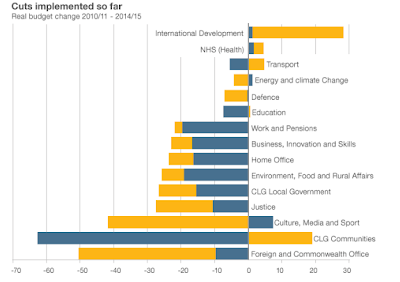Over the last month or two the question the scale of our welfare state has become the most important political issue in the UK and the battle lines are becoming clearer and more entrenched. On one side we have the Labour Party led by Ed Miliband who believe that it’s the states duty to provide support to its citizens from cradle to grave, he has gone somewhat further recently by proposing that these benefits should be a human right! On the other side of the fence we have a newly energised Tory party who believe that the safety net needs to be set much lower and that automatic increases to the budget should be abandoned. Recent initiatives to: cap benefits, reduce housing allowances and review disability payments have gone down well with the public and this should give them the confidence to do more. In parallel to this hardening of attitudes we have had the scandal of poor care in the NHS, which has thrown fuel on to the fire. The Tories are blaming Labour for throwing money at the NHS without insisting on improved standards and Labour are sure the problem is about stealth cutbacks enforced on an over-burdened health service.
At the centre of this coalition’s agenda have been two simple ideas, the first is that the quality of services provided by the government does not correlate directly to amount of money that is spent on the service. The second idea is that many services that have been provide without a second thought and may in fact be unnecessary or inconsequential to the public at large. It’s slightly alarming that no one thought to ask us if we wanted or needed our pavements swept every other day or where every highway and byway needs street lighting. This conceit has been keep going by the liberal elite that infects most of our media and civil service, the BBC being the most obvious and culpable example of this. Let’s hope that this newly invigorated government will now have the confidence to start hacking back on other services that we certainly don’t want or need, most of the BBC’s output would be a good place to start. They should be emboldened in this task in the knowledge that meaningless public sector ‘jobs’ can be replace by real jobs in the private sector. Since 2010 600,000 public sector jobs have been lost but in the same period we have created double this number in the private sector, and the picture over the last 12 months has improved further.
But it’s the realisation that money is only one of the things you need to deliver services to a high standard. The mantra of the Blair / Brown years was,after 2001, to throw money at problems to make them go away, a decade on, we can now see the folly of this approach. Interestingly in the initial years of the Labour government Blair kept a very tight rein on public expenditure to deliver on his election promises, it was only in 2001 that the brakes came off. Thinking back, it’s difficult to remember any noticeable improvement in any services between the 2001 and 2009. Furthermore looking at the chart, which shows the % change in ‘real’ expenditure by department over the recent period of aysterity, do we really think that;
1. Our prisons will be less well run?
2. The diplomatic service will cease to work?
3. That our children will less well educated?
The answer to these questions is obvious; No! There is now hard evidence emerging that reducing the funding to the police has has no impact of the rates of crime indeed as police numbers have fallen so has the crime rate.
It now pretty clear that the massive increase in funding that went into health and welfare more generally did buy some votes in the 2005 and 2010 elections, by made virtually no difference in the quality of services that we the public paid for. So it’s unsurprising that the swinging cuts that have been made to local government budgets and other parts of our public sector have made very little difference to the services we receive. When was the last riot because libraries open for fewer hours or because there are more pot holes around, the truth is that we did not need many of the services that we were being forced to fund. In the same way have schools got worse and does the diplomatic service leave us embarrassed on the world stage? Of course not!
In health this construct is most obvious, despite huge over investment (14% real increase since 2010) the NHS has some £17bn on clinical negligence claims outstanding and unacceptable mortality in many hospitals. The problem with the NHS is a refusal to listen and learn from mistakes rather than a shortage of money. Simple quality management practices don’t need money indeed big budgets, indeed these might be a distraction, the requirement is for leadership and hard work. Suddenly the light has come on and we start to see the truth, which is that many of these cripplingly expensive public services are poorly delivered and often unwanted.


No comments:
Post a Comment